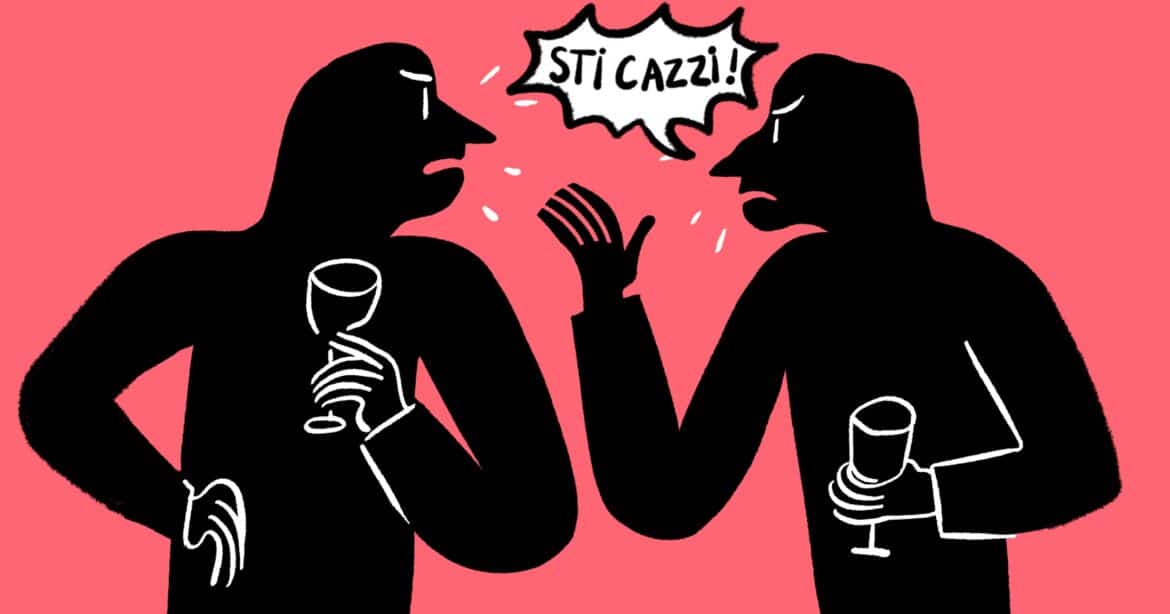869
Italian insults are not usually taught in language courses. But swearing is also part of the language and can be learned accordingly. In this article, we present 10 common swear words in the Italian language.
10 Italian insults and swear words
Many Italians are very vulgar and like to use swear words frequently. The following list reveals some of the most common insults in the Italian language.
- stupido – This insult means “stupid” or “dumb” and can be compared to the English “idiot.”
- pezzo di merda – Means ‘bastard’ or “son of a bitch.”
- vai al diavolo – Can be translated as “go to hell” and is used when you are so angry that you no longer want to see the person.
- cretino – This is the Italian word for “moron.”
- cazzone – This Italian word translates as “idiot.”
- stronzo – This swear word can be compared to the English “asshole.”
- vaffanculo – One of the most common Italian swear words. It means something like “kiss my ass.”
- poveretta, tua madre! – Can be translated as “your poor mother.”
- ci fai o ci sei? – The translation of this question is “are you pretending or are you really like that?” It is usually used when someone behaves in a way that is hard to believe. Comparable to “Are you crazy or what?”.
- fifone – The translation of this insult is “lazy dog”.
Cultural significance and social contexts of Italian insults
Italian insults have a special cultural significance and occur in different social contexts, whereby they are much more than mere verbal abuse – they convey emotion, regional identity, and social values.
- Italian swear words are often very vivid, emotional, and melodic, which distinguishes them from many other languages. In Italy, a veritable “art of swearing” has developed, in which not only words but also gestures, intonation, and even humor play a role.
- In some regions, especially in the south, insults are expressed in an almost theatrical manner and with great passion. They are an expression of feelings, but sometimes also serve to create distance, irony, or even friendly teasing between close acquaintances.
- The use and intensity of Italian insults depend heavily on the social environment and the region. In northern Italy, insults are often shorter, more sarcastic, and less dramatic, while in the south they are often expressed with a great deal of pathos and creative use of family references.
- Children and young people learn early on to use swear words in the social “struggle for survival” as a response to insults from others. Many expressions are used ironically and not really hurtfully in casual friendships – but there are also variants that are extremely offensive and socially taboo, especially words with sexual connotations or those directed at family members.
- Common categories and examples: Animal names are often used to belittle other people; this can be meant both pejoratively and humorously. Insults such as “figlio di puttana” () or expressions with sexual connotations (“vaffanculo”) are widespread and are used with varying degrees of intensity. In particularly Catholic regions, blasphemy and cursing can be perceived as particularly serious insults.
- While ironic swearing is quite common and accepted among groups of peers or within the family, many expressions are considered an absolute taboo in formal, public life. Those who are unaware of the social “dos and don’ts” can easily cause a faux pas or even a serious insult.
- Italian insults thus reflect social values and emotional states and vary significantly depending on context, relationship, and regional background.

